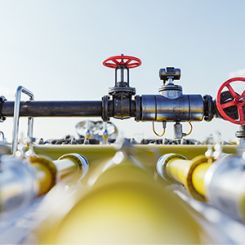
Jens Dralle, global product sales manager-hygienic for ITT Bornemann, answered some questions for Pumps & Systems pertaining to the food and beverage industry.
What trends are we seeing as it relates to food and beverage heading into 2023?
We see a focus on sustainability and energy savings as well as the tendencies of end-users to source out planning for expansions and new production lines to local contractors and EPC (engineering, procurement, and construction).
How have any price increases of products or materials impacted you or your company?
The cost increases hit ITT Bornemann as well as the other suppliers for pumps and systems. Especially the huge increase in Stainless Steel, which most parts are built of, led to a significant cost increase. Bornemann does not give all cost impacts back to market, because we compensate and use synergies with our industrial product lines.

What needs to happen in regard to industry improvements in the short term?
Hygienic requirements by design and cleaning processes need to find higher level of focus for expansions and new builds. Certifications like European Hygienic Engineering and Design Group (EHEDG) for instance need to consider highest hygienic standards, starting with the working principle of rotating equipment for both, production and cleaning processes.
As per today´s certifications, this is not considered.
What issues have you seen with any material shortages or supply chain issues?
Supply chain issues are mostly seen in deliveries from China due to the strict covid restrictions over there. Most critical are electronic parts for motors and frequency inverters, whenever it comes to delivery of complete aggregates.
What are some advantages of using screw pumps in food and pharmaceutical applications?
There a several advantages using twin-screw technology, all have their validity for different applications.
A key feature is that the pumps can operate product and cleaning in one. This saves another clean-in-place (CIP) pump, a bypass and even more control devices. From a total cost of ownership, this is a huge advantage.
In addition, the working principle is very gentle and shear sensitive to the product and the twin-screw pump design by its own enables the customer to clean the pump without dismantling.

